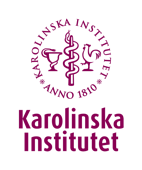My research program is to study women’s mental health over the life course and to bridge the gap between Obstetrics/Gynecology and Psychiatry. Leveraging international large-scale population-based cohorts, I aim to understand the underlying biological mechanisms affecting women’s mental health and potential health consequences. My current main research topics are:
1) Risk factors and health consequences of reproductive mood disorders or sex-specific mental disorders, including:
° premenstrual disorders (premenstrual syndrome and premenstrual dysphoric disorder)
° perinatal depression (prenatal and postnatal depression)
° perimenopausal depression and menopausal symptoms
° other maternal mental disorders occurred during and after pregnancy
2) Sex disparity in mental health
Grants:
My research work is supported by the Swedish Research Council (VR), Swedish Research Council for Health, Working Life, and Welfare (Forte), China Scholarship Council, and Karolinska Institutet Strategic Research Area in Epidemiology and Biostatistics (SFOepi), Faculty Board, Board of Doctoral Education, and Research Fund.
Contributions to Science:
1) Early life origins and risk factors of premenstrual disorders
Premenstrual disorders are typically diagnosed in women in their 20s/30s, but my research has shown that the symptoms often begin during adolescence. In fact, in a sample of young women in the US, I found that approximately 70% of premenstrual disorders had onset before the age of 20. However, little was known about the factors in early life that may predispose these women to the onset of premenstrual disorders during adolescence. Through my studies, I have identified several important risk factors for premenstrual disorders developed later in life, including early menarche or pubertal development, adverse childhood experiences, childhood overweight or obesity, and childhood asthma or food allergy. These findings have significantly contributed to the understanding of the early life origins of the pathophysiology of premenstrual disorders.
2) Health impact of premenstrual disorders
Although premenstrual symptoms are restricted to the days before menstruation, the chronic and cyclic condition may translate to a profound impact on the long-term quality of life. However, there is a lack of prospective data to understand the health consequences of premenstrual disorders. My research is the first to demonstrate that patients with premenstrual disorders are at increased risks of subsequent suicidal behavior, accidents, perinatal depression, early menopause and severe menopause symptoms, premature death, and eventually contribute to the sex gap in mental health. We also found that use of hormonal contraceptives, particularly combined products, may reduce the rates of suicidal behaviors among women with premenstrual disorders.
3) Health impact of perinatal depression
Maternity care typically prioritizes pregnancy outcomes, often sidelining women’s mental well-being. Perinatal depression affects as many as 10-20% of women giving birth worldwide. In contrast to the common belief that perinatal depression is self-resolving, many cases can last for months or even longer, particularly if left untreated. However, prospective data are lacking to illustrate whether women with perinatal depression may confront enduring health consequences. My research is among the first to demonstrate that patients with perinatal depression are at increased risks of subsequent suicidal behavior, autoimmune disease, cardiovascular disease, and mortality.
Experience
-
–presentAssociate Professor in Epidemiology, Karolinska Institutet
- Stockholm, Sweden
- Website
- @LuDonghao
- Article Feed
- donghao.lu@ki.se
- ORCID
- Joined


